Moneywise team’s top 10 grocery shopping tips on a budget
With the cost of living rising, many will struggle to put food on the table. You may have already exhausted the tried and tested favourites such as bulk buying, experimenting with supermarket own brands, shopping through cash back websites, and knowing the difference between ‘best before’ and ‘use by’ dates. But we’ve also been ‘shopping around’ and have some great tips and tricks to share, some of which may be new to you.
1. Did someone say free (or cheap) food?
Just when you thought there was no such thing as a free lunch. Olio is a free food sharing app which aims to minimise wasted food through feeding the community. As well as the general public donating unwanted food items, supermarkets and retailers (distributed via volunteers) also do.
Too Good To Go is another great app. It lets you buy and collect cheap food from local businesses which would otherwise go to waste. You don’t know exactly what you’re getting until you pick it up but that’s all part of the surprise. We love this app, especially the way you can categorise by proximity, what’s coming up, baked goods, meals and more.
Another top tip is registering for a Simply Cook recipe kit and receiving your first box for free (plus £1 postage). For this you get to choose four recipes, each recipe contains three pots of pastes, stock or herbs/spices, with easy to follow recipe cards which require minimal fresh/store ingredients. There’s absolutely no obligation to continue and cancelling is hassle-free using their nifty app.
Olio Too Good To Go Simply Cook
2. Grab a bargain from your local market
Market traders can have lower overheads and pay less for their fresh produce, meaning they can sell them on at a much cheaper price. You may find some items are passed their best but if you plan on using them soon (or cook and freeze them) then this is a much cheaper way to shop.
Look out for non-perishable food stalls which sell items like crisps, cereals and snacks. Stocking up on items like this can be especially useful before the school holidays.
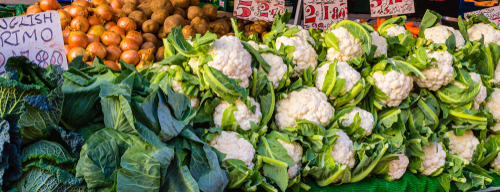
3. Play the supermarkets against each other
If you are going to shop at a supermarket then there’s benefits to doing this online if you’re a new customer. New customer discounts are offered by most of the big supermarkets and you can work your way around the major chains one by one. Such as £15 off Co-op on Amazon, £5 off Iceland and £20 plus free delivery off Ocado – see MoneySavingExpert for more information.
Once you’ve exhausted them all, shopping at Lidl or Aldi can save you buckets. Given how cheap items in these two supermarkets can be in comparison to the bigger chains it’s not surprising that their sales are soaring. Because of this it’s best to visit first thing in the morning or in the evening to beat the crowds.
4. Love a list
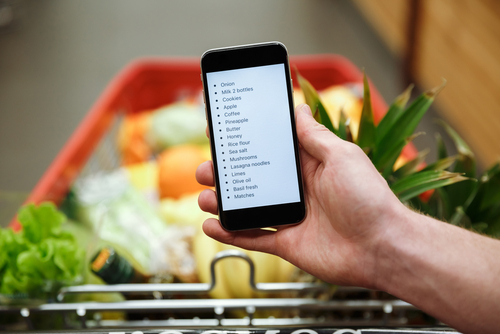
Plan meals for the week and what you need to buy to make them happen. Be economical with ingredients, for example if you need to use half a tin of tomatoes for one recipe, plan another recipe to use up the other half. Remember to factor in doing some batch cooking for freezing too.
When shopping, try not to deviate from your list and never go shopping when you’re hungry.
5. Buy in season
Buying in season will not just save your money, you’ll also get to enjoy the most wholesome food on the market. Print out a list of what’s in season and when, and stick it on your fridge so you can keep referring back to it.
6. Be clever in the aisles
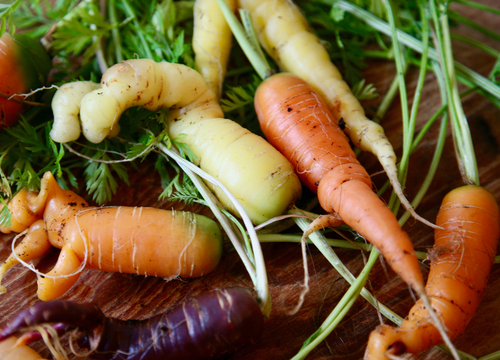 Did you know you can often buy the same item in the same supermarket for less? Crazy we know but true! For example, cotton buds in the baby aisle are cheaper than the beauty aisle.
Did you know you can often buy the same item in the same supermarket for less? Crazy we know but true! For example, cotton buds in the baby aisle are cheaper than the beauty aisle.
World food aisles are also a great place to find authentic food at cheaper prices, such as tinned beans, pulses and spices.
And we love buying wonky. Many supermarkets would have previously thrown out their imperfectly shaped fruit and vegetables but will now sell them on to customers more cheaply, and thus reducing waste. It’s the taste that matters after all! So next time you’re in the supermarket look out for those crooked carrots and bent beetroots. Also consider mixed sized eggs; they’re cheaper and it’s useful to have different sizes for different uses.
Finally, don’t forget to look up and down! The most profitable items (for the supermarkets) are placed at eye level. This makes sense for them, after all their aim is for you to spend more, but it’s not always the best option for consumers.
7. Everybody loves a yellow sticker
Supermarkets are now spacing out the times they mark items down which are near their expiration, to prevent the flurry of keen shoppers desperate for an end of day bargain. As a rough guide, reductions start appearing mid-morning and prices are further slashed throughout the day, meaning by early evening you can get 75% or more off the original price. Your freezer will be your friend here.
We are so excited about Lidl’s ‘Too Good To Waste’ boxes. These 5kg boxes are only £1.50 and packed with fruit and vegetables which have become slightly damaged, discoloured or are past their best, but are still good to eat in the short term (or freeze or make into a soup / stew / smoothie). These are currently available to customers from opening until midday.
8. Eat well for less
There’s only so much you can fit in a blog, but we highly recommend watching Eat Well For Less?, staring Chris Bavin as he helps families cut their shopping bills by half through practical tips.
9. Fall in love with your freezer
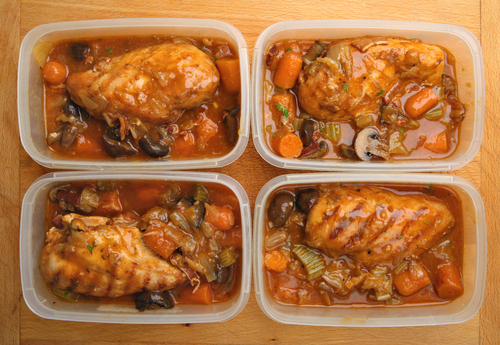
When you prepare a recipe, double it and put the extra portions in the freezer. It’s much cheaper to buy extra ingredients for the same dish than to buy new ingredients for separate recipes. You’ll also save on total energy used too.
We recommend keeping a stock list of what’s in your freezer and from when. Try getting into the habit of working leftovers into your meal planning – you wouldn’t want all your hard work going to waste.
10. Help from your community
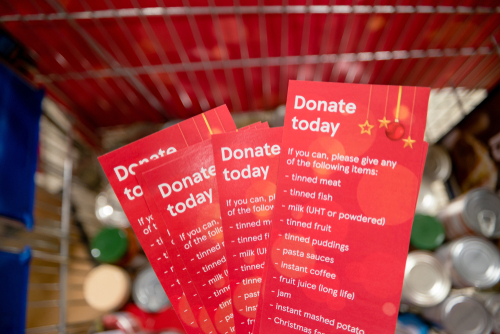
If you’ve tightened the purse strings as much as possible and it’s still not enough, then you can always ask for help from your local foodbank. You’ll receive a parcel of three days’ worth of nutritional, non-perishable food. If you need a referral for a foodbank voucher, the Moneywise team can help with this.
Food clubs are another option to consider. They are membership schemes, usually costing £1 to join and paying a nominal fee to attend and shop each week. Their aim is to provide a more sustainable solution to food poverty.
Maybe you have a community fridge near you? Community fridges are a hyper local solution to food poverty. They provide a range of free food, donated by local businesses and households, for anybody who needs it in the community.
For a directory of foodbanks, clubs and community fridges in your area, see our website.
We hope you’ve found our top tips useful. You can find further helpful advice and information at Money Saving Expert.
Remember, if you need help managing your money contact the Moneywise team – we’re here to help? The best way is through the MyRaven customer portal…
Or you can email moneywise@ravenht.org.uk or call 0300 123 3399.